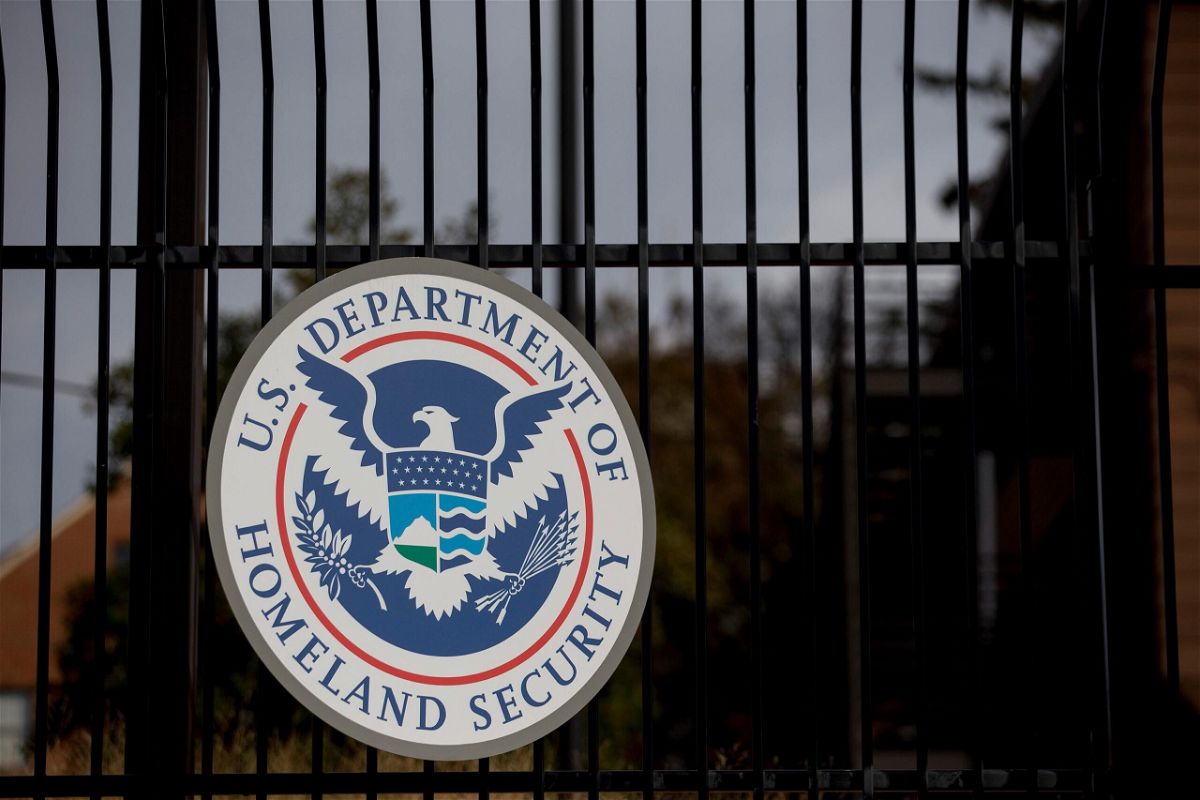Department of Homeland Security rejects GOP assertion that terrorism bulletin is attempt to ‘police thought’

The Department of Homeland Security's intelligence chief is defending the department's recently released national terrorism bulletin in public comments and memos this week in an attempt to push back against Republican criticism that the Biden administration is attempting to police political thought.
By Geneva Sands, CNN
The Department of Homeland Security’s intelligence chief is defending the department’s recently released national terrorism bulletin in public comments and memos this week in an attempt to push back against Republican criticism that the Biden administration is attempting to police political thought.
The bulletin, released earlier this month, includes concerns about the connection between violent extremism and the spread of “false or misleading narratives” related to election fraud and Covid-19.
These politically fraught topics sparked Republican backlash against the department, including a letter to the Homeland Security secretary calling for revisions to the bulletin.
On Thursday, a workforce message sent on behalf of John Cohen, who leads the DHS Office of Intelligence and Analysis, said the bulletin provided “transparency on the threat environment to all Americans,” along with guidance and resources to prevent terrorism.
The message also linked to Cohen’s remarks earlier this week, in which he said it is ” irresponsible” to suggest that DHS or the Biden administration are attempting to investigate people because of their political beliefs. The intelligence behind the bulletin, Cohen added, had been shared with members of Congress.
“So for public figures, particularly those that know better, and know the reality of the threat environment, to suggest that somehow the department or the administration is simply trying to open the door to investigate people because of their political beliefs, or people who are involved in Constitutionally protected speech, I mean, quite frankly, it’s irresponsible,” Cohen said Tuesday in a discussion hosted by the George Washington University Program on Extremism linked to in his memo. “And it may also contribute to the volatility of the threat environment.”
A similar message was also shared with state and local partners outside of DHS on Friday, according to a source familiar with the notification.
On February 7, DHS had updated its National Terrorism Advisory System bulletin — one of the primary mechanisms DHS uses to inform the public about potential terrorist threats.
In part, it warned that the convergence of violent extremist ideologies, false or misleading narratives, and conspiracy theories “have and will continue to contribute to a heightened threat of violence in the United States.”
For example, the bulletin cites: narratives regarding “unsubstantiated widespread election fraud and COVID-19.”
“Grievances associated with these themes inspired violent extremist attacks during 2021,” it says.
On Tuesday, Sen. Marsha Blackburn, a Tennessee Republican, sent a letter to DHS Secretary Alejandro Mayorkas urging the department to update the bulletin.
“I am concerned about the appearance of the Department of Homeland Security policing the speech, thoughts, and opinions of American citizens,” she wrote, adding that DHS “appears to endorse particular narratives regarding controversial issues that are at the center of our national political conversation.”
She also wrote, “the Department comes dangerously close to suggesting that publicly disagreeing with the current administration is akin to domestic terrorism.”
Former President Donald Trump accused the Biden administration of doing “anything to keep the eye away from the massive irregularities and voter fraud that took place in the 2020 Presidential Election” and calling on DHS to instead focus on the border.
For years, Trump has embraced conspiracy theories about voter fraud, CNN has previously reported, along with fact-checks debunking the former President’s claims on this issue.
Republican Sens. Marco Rubio of Florida and Ron Johnson of Wisconsin also spoke out against the bulletin.
“New bulletin states if DHS thinks you post “misleading narratives and conspiracy theories,” or “mis-dis- and mal-information” on topics like COVID-19 you will be labeled a domestic terrorist. Will I be next? Will you? This should frighten every American,” Johnson tweeted.
When asked about the recent criticism during the GW panel discussion, Cohen said, “Our job is not to police thought. Our job is to prevent acts of violence. We do not monitor individuals as they are involved in constitutionally protected speech.”
His comments and the memo are an effort to refute allegations that the bulletin contained a political motive.
“[A]nyone who suggests that this NTAS reflects a strategy of this administration and this department to target for investigation, individuals, simply because of their political or other beliefs, either didn’t read the NTAS, didn’t understand it or is intentionally misrepresenting it,” he added.
The-CNN-Wire
™ & © 2022 Cable News Network, Inc., a WarnerMedia Company. All rights reserved.